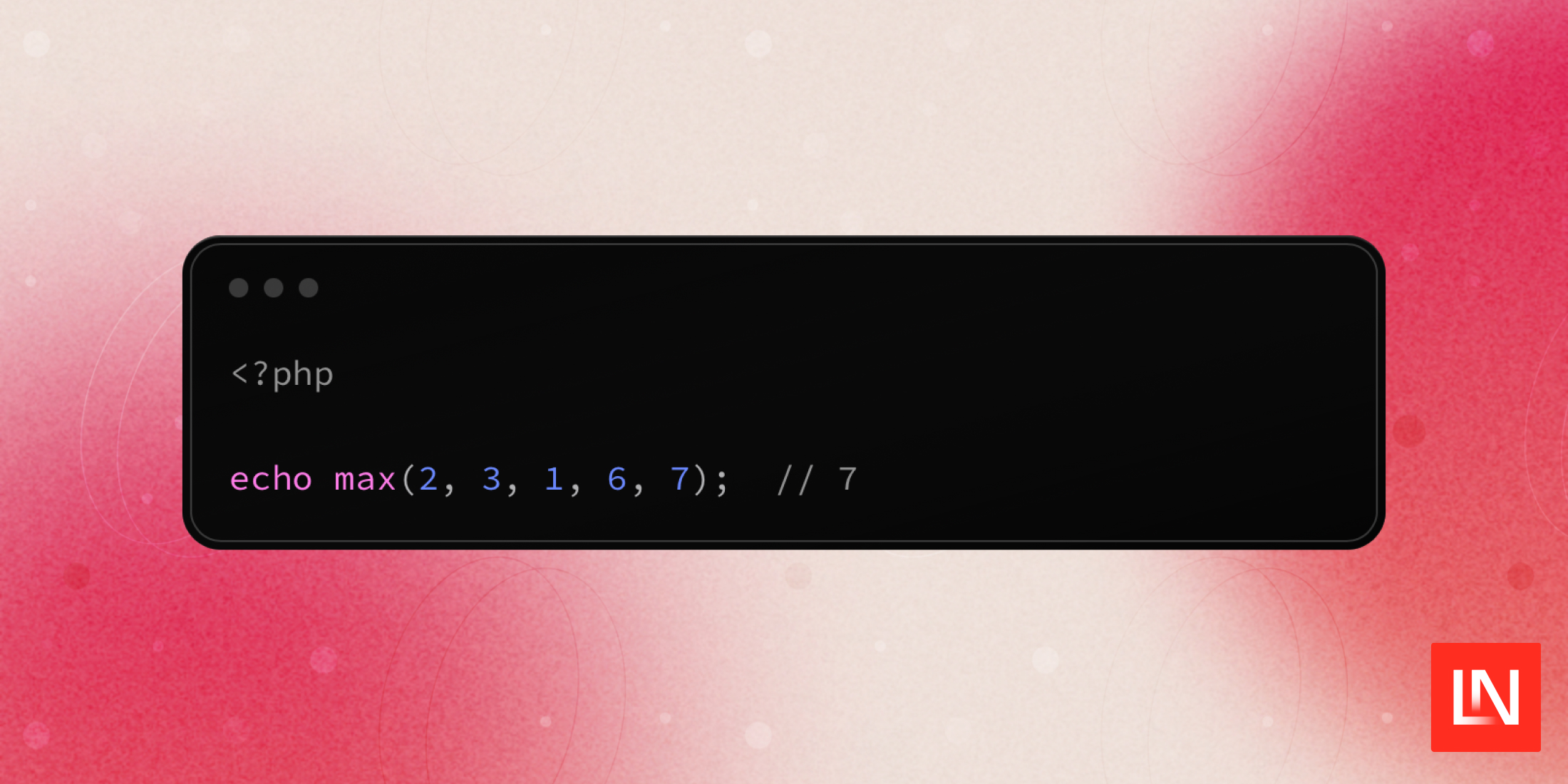PHP's max() function is used to find the highest value in a list of items. Here are a few examples of how this works:
echo max(2, 3, 1, 6, 7); // 7echo max([2, 4, 5]); // 5I ran across a piece of code I had written and used this function to do a quick refactor. Let me show you in a video, or follow below for a full write-up.
Taking a Look at the Original Code
In our existing setup, we handled this requirement using a Ternary Operator. Let's say typical pricing tiers in a SaaS application include Bronze, Silver, and Gold plans. Our case scenario ensures Gold Plan buyers order at least ten licenses.
if ($selectedTier === 'gold') { $licenses = $licenses > 10 ? $licenses : 10;}The condition in the Ternary operator checks if the Gold Plan is selected. If so, it evaluates the inner Ternary operator that compares the variable $licenses to 10. If $licenses is less than 10, it replaces it with 10; otherwise, it retains the current value. If the Gold plan is not selected, it simply leaves the $licenses intact.
While this approach works, the code is bulky and moderately challenging to understand. I wondered: "Can I simplify this to make it more readable and elegant?"
Using PHP Max Function for Refactoring
That's when the magical PHP Max function comes in! The max function is a mathematical function in PHP that is used to find the maximum value among the provided integers.
The answer to our previous question definitely appeared to be "Yes," see how we can refactor this:
if ($selectedTier === 'gold') { $licenses = max($licenses, 10);}In this refactored version, if the Gold Plan is selected, the max function compares the number of selected licenses with ten and returns the higher value. If the Gold Plan isn't selected, it does nothing to the $licenses.
This new code snippet is not only shorter but also easier to understand. If you're familiar with the max function, you'll know how this code operates immediately. The readability of this code is significantly better than the original version, which is a crucial aspect of clean and maintainable code.
Fun Fact: PHP's
maxfunction can be a powerful tool to simplify complicated Ternary Operators involving numeric comparisons.
Recap
This minor yet impactful code refactor using PHP's max function highlights the importance of always seeking simplification and elegance in your codebase. An elegant codebase is easier to maintain, read and share among team members.
Whether you're creating a SaaS app or any application that requires conditional control flow based on numerical values, the max function could be one of the PHP functions that could streamline your coding process. So, why not ditch that complex Ternary Operator for the neat built-in max function?
Remember, the simpler your code, the easier it is to read in the future.















